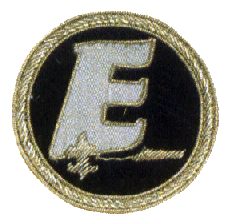

1. UNDERSTANDING THE NEEDS AND CHARACTERISTICS OF THE POST
Each individual member of the group has certain needs and characteristics.
1. A leader should understand his or her own needs and characteristics.
2. A leader should understand the needs and characteristics of each member of the group. This helps the leader to deal with each person as an individual, to treat that individual with respect, and to help the person grow.
3. This understanding helps in planning the program and in getting things done.
4. This understanding creates trust and builds confidence among group members.
Through conversation and informal surveys of post members, try to find out:
2. KNOWING AND USING THE RESOURCES OF THE GROUP
Resources include all those things necessary to do a job. Resources also include people, because people have knowledge and skills. Knowledge is what a person learns through familiarity or experience-what you know. Skill is the ability to use what you know. Attitude includes the desire to do something-motivation-and the belief that you can do it-confidence.
When the leader uses the knowledge and skills of group members to get a job done, the members gain experience and improve skills. They also develop a positive attitude toward using a skill.
3. COMMUNICATING
To improve your skills in getting information:
4. PLANNING
Planning is an important part of everything we do in Exploring. The following is a simple process for planning:
5. CONTROLLING GROUP PERFORMANCE
A leader influences the performance of the group and individual members through his or her actions. Why is control needed?
A group needs control as an engine needs a throttle-to keep it from running itself into the ground. A group works together best when everybody is headed in the same direction. If a plan is to e properly carried out, someone must lead the effort. Control is a function that the group assigns to the leader to get the job done. Control happens as a result of recognizing the difference between where the group is and where the group is going. The leader is responsible for developing a plan to help the group get to its goal.
Setting the example is the most effective way of controlling the group. When working with post members, do the following:
6. EVALUATING
Evaluating helps measure the performance of a group in getting a job done and working together. It suggests ways in which the group can improve its performance. There are two basic categories of evaluation questions. After any event or activity, ask these questions:
Getting the job done-
7. SETTING THE EXAMPLE
Setting the example is probably the most important leadership skill. It is the most effective way to show others the proper way to conduct themselves, and is even more effective than verbal communication. Without this skill, all the other skills will be useless. One way to think about setting the example is to imagine yourself as a member of a group and think about how you would like your leader to act.
8. SHARING LEADERSHIP
While there are various ways to exercise leadership, the goal of Exploring leadership is exemplified in a quote from the ancient Chinese philosopher, Lao-Tzu: "But of a good leader...When the work is done, his aim fulfilled, they will say, 'We did this ourselves.'"
The Exploring leader wants to give post members the skills he or she possesses, not to use those skills in ways that keep the post weak or dependent. He or she offers leadership opportunities to post members and teaches them the skills they need.
9. COUNSELING
Counseling is important
10. REPRESENTING THE GROUP
Where do you represent the post? Post leaders represent the post at post committee meetings, Advisor's meetings, officers' meetings, Explorer officers' association (EOA) meetings, and planning conferences, and to the chartered organization.
The leader represents the post in two situations:
11. EFFECTIVE TEACHING
Effective teaching is a process to increase the knowledge, skills, and attitudes of the group and its members. The focus is on learning, not teaching. For teaching to be effective, learning must take place.
The steps of effective teaching include
The above leadership skills can also be found on pages A-64 through A-66, in the Explorer Leader HANDBOOK, Copyright 1995, Boy Scouts of America, Irving Texas, ISBN-0-8395-4637-0, No. 34637, Printed in the U.S.A., 1995 Printing. This Web Page was created for educational and training purposes only, for use by members of BSA Explorer Posts, and any other use for any commercial or unlawful purposes is strictly prohibited.